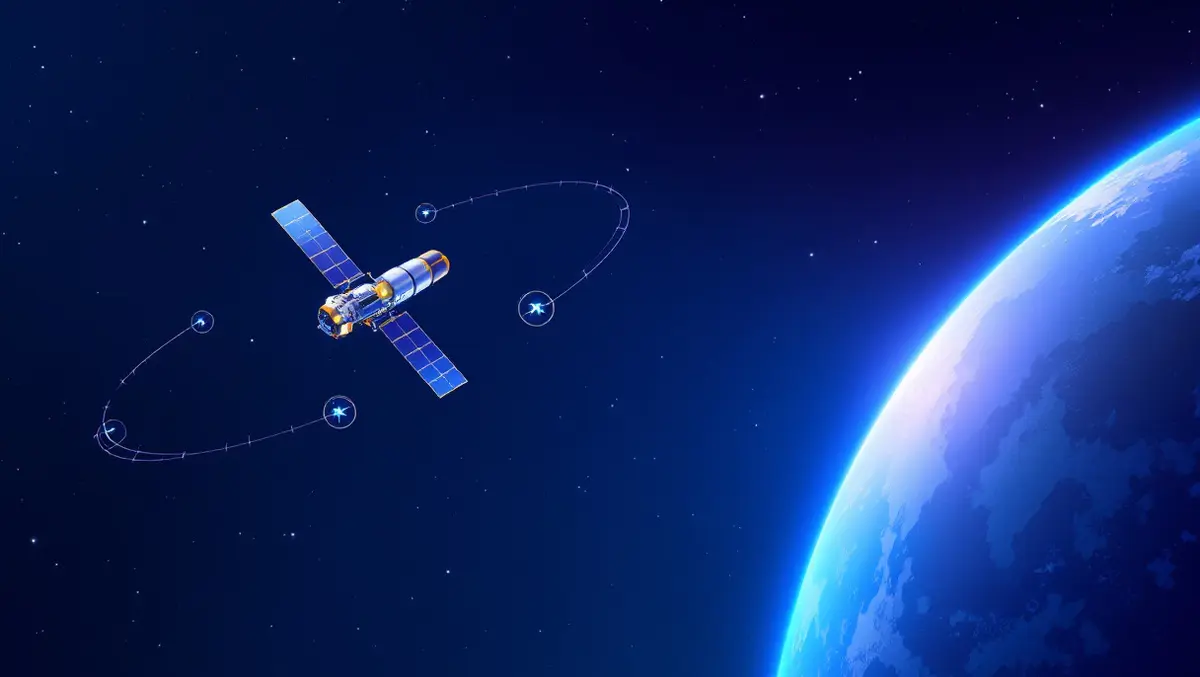
PiLogic secures $4 million to boost precision AI for space
PiLogic has completed a seed funding round of $4 million to advance its mathematically precise artificial intelligence for the aerospace and defence sectors.
The funding round was led by Scout Ventures and Seraphim Space, with significant investment from Sovereign's Capital, as well as participation from Flex Capital, FN Fund and superangel Gokul Rajaram.
PiLogic's exact AI models are described by the company as faster and more accurate on specific use cases than large language models (LLMs), while utilising less computing power. Rather than relying solely on machine learning from large datasets, PiLogic's platform applies logical and probabilistic inference, search, and direct integration of engineering fundamentals and expert knowledge. According to PiLogic, this approach does not require expensive hardware such as Graphics Processing Units (GPUs).
An earlier iteration of the company's inference engine has previously outperformed comparable methods on relevant benchmarks. The company reports that new advances have resulted in an even more powerful inference engine, capable of addressing complex problems that other systems cannot. PiLogic states that its technology can be deployed on remote devices such as satellites without additional compute resources.
PiLogic is targeting two major challenges in the defence and space industries with its first models. The first, a radar model, tracks and predicts objects in 3D space, distinguishing between various types of objects, such as airplanes and drones. The company claims it performs even when such objects cross paths or are in close proximity, achieving several times the effectiveness of existing systems. Adaptations for sonar, GPS and LIDAR are also planned.
The second initial model focuses on electrical power system diagnostics. It enables satellite operators to predict the health of components using onboard sensor data and recommends remediation in near real time. PiLogic states this model can be implemented either on the ground or on the satellite, and it has undergone validation work with NASA.
Further reported use cases for PiLogic's AI models include supporting autonomous flight, threat prediction and response, diagnosing on-board system failures, radar tracking and sensor fusion for aircraft and spacecraft. The company emphasises that its models are designed for mission-critical environments where precision is essential.
The new investment will be used to expand PiLogic's core team, develop its product range and support early customers facing challenges in the aerospace and defence sectors.
PiLogic's founders are Mark Chavira, Johannes Waldstein and Geoff Bough. Chavira, serving as Founder and Chief Technology Officer, has previously worked on avionics operating systems at Raytheon, completed a PhD specialising in probabilistic inference at UCLA, contributed research at NASA and held engineering leadership roles at Google.
Co-Founder and Chief Executive Officer Johannes Waldstein has co-founded and headed five startups over two decades, focusing on data science and AI innovations. His most recent venture was AI-driven adtech firm Fan.AI, which was acquired in 2024. Co-Founder and Chief Revenue Officer Geoff Bough brings more than 15 years' experience in business development and sales, having been part of FanDuel and held executive roles at Flutter, Caesars and Triller.
Commenting on the seed round, Johannes Waldstein, Founder and CEO at PiLogic, said: "We are incredibly excited about the potential of exact AI to transform industries at the point of need, where precision is critical. We believe that many of these critical applications, especially in defence and space, can't feasibly be addressed by GenAI. And that is what we are here to solve. This funding will allow us to scale our team and expand our platform, bringing our innovative technology to more commercial and government clients."
Brad Harrison, Founder and Managing Partner of Scout Ventures, said: "PiLogic's lightweight, efficient, and exact inference engine will help chart a new course for AI adoption in industries like Aerospace and Defense. At Scout, we are excited by the opportunity to support a team and technology that will ultimately enhance the efficacy of the critical systems supporting no-fail missions."
Andre Ronsoehr, Partner at Seraphim Space, added: "PiLogic's approach to high-stakes decision making on the edge has the potential to transform the space industry. It is a sector still rife with rules-based-systems and humans in the loop, often for the lack of viable alternatives. PiLogic will change that and enable satellite and spacecraft operators to realize the full benefit of AI. Notably, their approach is both differentiated and counterintuitive in a world currently obsessed with generative AI. And I very much like that."
PiLogic's technology is constructed upon Bayesian networks and inference engines capable of solving complex problems with higher efficiency and lower computational requirements compared to traditional models. The company claims its systems are able to handle Bayesian treewidths in the hundreds, compared with traditional limits of 36. This could enable sophisticated space situational awareness and management of satellite constellations, tracking thousands of objects in orbit, debris, and potential hazards for space operators.


